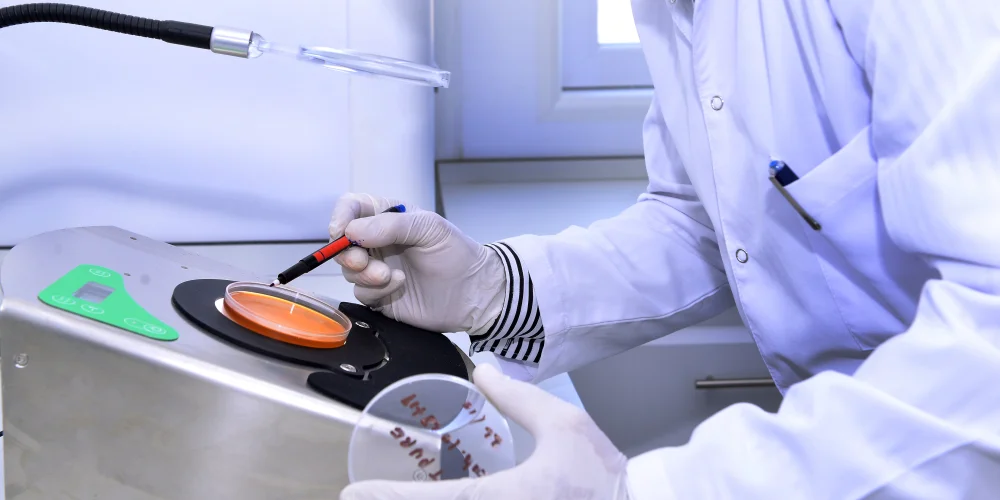Sputum Culture and Sensitivity
Assessment for Respiratory Infections
The Sputum Culture and Sensitivity (C/S) Test is an examination to examine samples of sputum which is mucus that has been sucked up by the lung. The test starts by the collection of a sputum specimen, typically in the early morning when mucus production at its peak. The sputum sample is then cultivated in a laboratory to determine any microorganisms like the fungi or bacteria, that may be found within the sputum. After identifying these pathogens, this test will determine the effectiveness of antibiotics in fighting the underlying infection. This is crucial to identify various respiratory illnesses such as pneumonia, bronchitis, as well as tuberculosis. It also allows for the customisation of antibiotic treatment based on the particular infection.

When is the Sputum C/S Test Prescribed?
It is the Sputum C/S Test is prescribed in various clinical situations:
- The diagnosis of respiratory infections : If patients exhibit symptoms like a chronic chest pain, cough or breathing difficulties and there is a need for identifying the microorganism responsible for causing the symptoms.
- Evaluation of chronic respiratory conditions : For people with chronic respiratory illnesses like chronic bronchitis, or COPD to find out if a bacterial infection is present.
- Evaluation of Treatment Efficacy : To assess the effectiveness of current antibiotic therapy and to adjust treatment as needed.
Pre-Surgical or Pre-Treatment Assessment before beginning certain treatments or procedures related to respiratory ailments in order to ensure that the correct antibiotics are utilized.
Preparation for the Sputum C/S Test
The preparation to perform the C/S Test is to ensure your sputum specimen has been taken care of in a safe way. Patients are typically required to cough for a long time to collect a high-quality sample. It is best taken early in the early morning. It is essential to keep excellent hygiene and to use the cleanest, sterilized container to prevent contamination. Patients must inform their doctor about any recent treatments, especially antibiotics, since they can affect the results of tests.
Parameters Considered During Sputum C/S Test
In this Sputum C/S Test, several variables are analyzed. The focus is on identifying specific microorganisms that are present in the Sputum sample. This involves the detection of fungi, bacteria, as well as other pathogens. The test can also assess the sensitivity of microorganisms against various antibiotics, allowing an effective treatment plan.
Time Required for Sputum C/S Test Report
The time to turnaround is for Sputum C/S Test involves several steps. The process of collecting and processing the sputum samples are followed by the culturing of microorganisms. It may take several days since it takes time for the bacteria to develop. The results typically are available within 3 to 5 days dependent on the severity of the infection as well as the rate of growth of the microorganisms.
Sputum C/S Test Price
In Chirayu Super Speciality Hospital, the Sputum Culture and Sensitivity Test cost around Rs1000. This option is cost-effective and ensures an accurate and complete detection of respiratory pathogens which aids in the efficient treatment and management of respiratory infections.
Book an Appointment for Sputum C/S Test
Scheduling an appointment for an Sputum C/S Test is convenient because you can book the test online via our website or by calling our team. Our team is dedicated to delivering prompt and professional service that meets your health needs efficiently.
What Our Patients Say
Hear from our valued patients about their experiences at Chirayu Super Speciality Hospital and how our care has made a positive impact on their health and well-being.


I appreciated the thorough approach of the Sputum C/S Test in diagnosing my respiratory condition.


The detailed results from the Sputum C/S Test made a significant difference in my treatment plan.


The Sputum C/S Test provided a clear diagnosis of my respiratory infection and guided effective treatment


The Sputum C/S Test helped in pinpointing the exact cause of my respiratory issues.


Efficient testing and precise identification of pathogens from the Sputum C/S Test greatly improved my recovery.


Timely results from the Sputum C/S Test allowed for prompt treatment adjustments.
Frequently Asked Questions
Here, we provide answers to some of the most commonly asked questions to help you better understand our services, policies, and facilities. If you have any additional questions, please do not hesitate to contact us.
The Sputum C/S Test identifies microorganisms causing respiratory infections and determines their sensitivity to antibiotics.
A sputum sample is collected by coughing up mucus from the lungs, usually in the morning for the best results.
No special preparation is needed, but it is important to follow hygiene practices and inform your healthcare provider of any recent treatments.
Results are generally available within 3 to 5 days, depending on the growth rate of the microorganisms and the complexity of the infection.
Discuss the results with your healthcare provider to determine alternative treatment options based on the sensitivity profile of the identified microorganisms.